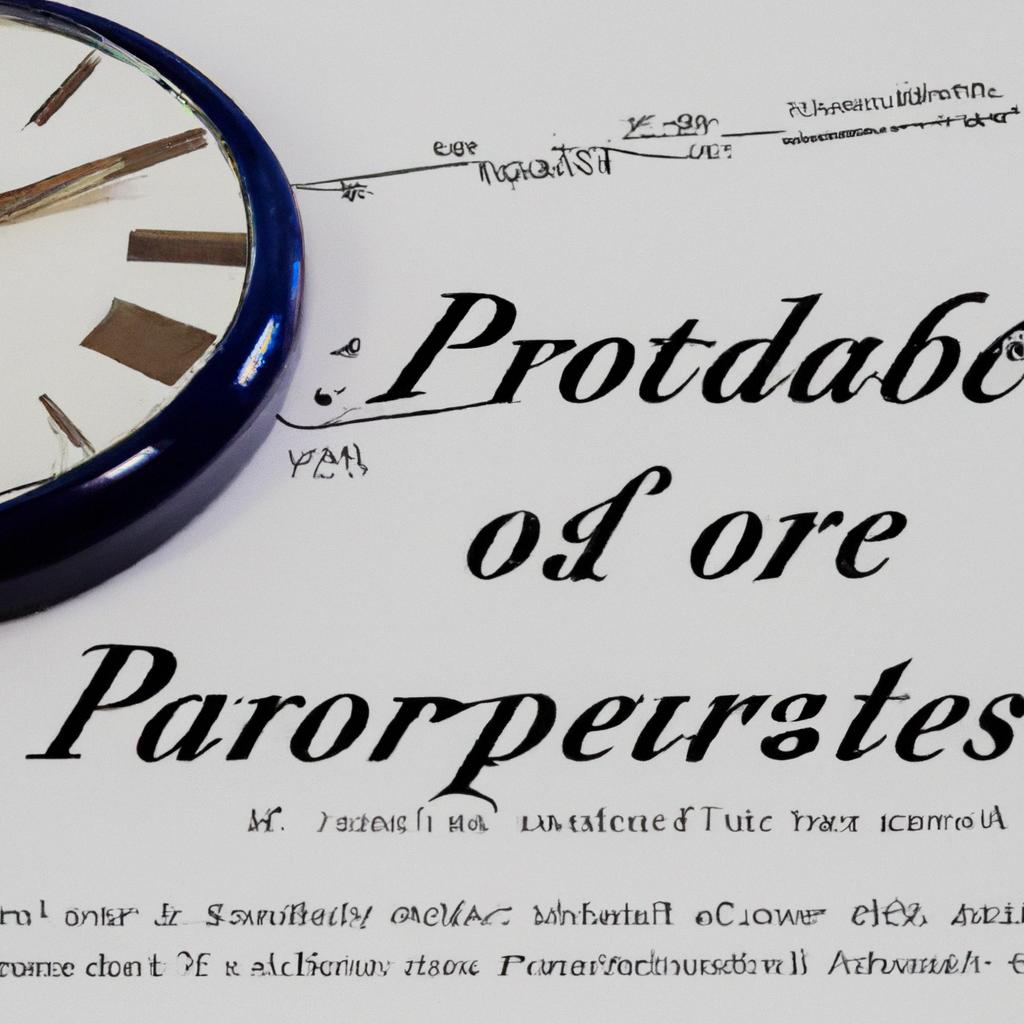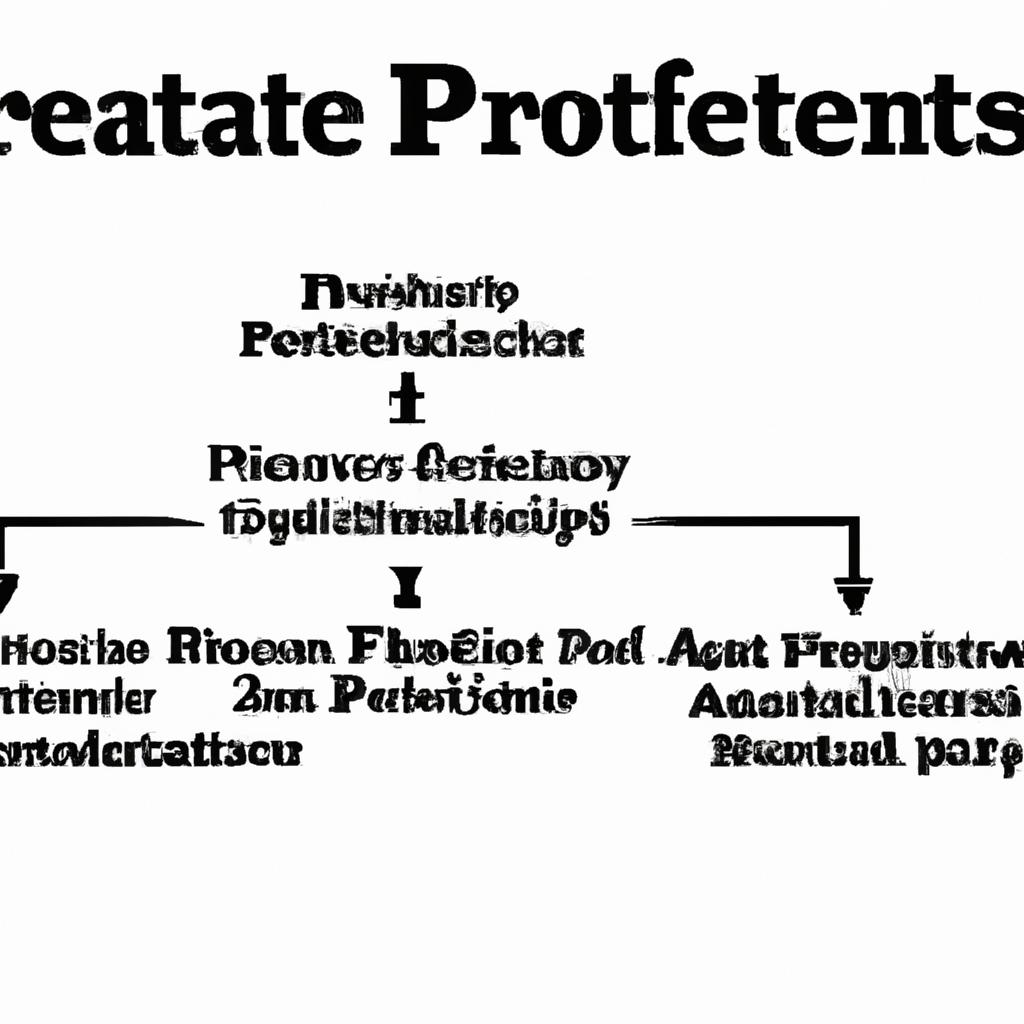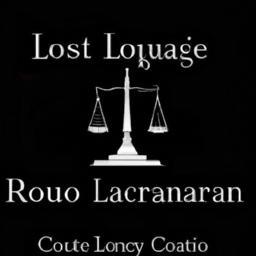Probate court, a term oftentimes met with trepidation and uncertainty, can be a complex and lengthy process. As seasoned legal professionals at Morgan Legal Group in New York City, we understand the importance of demystifying this often misunderstood facet of estate planning. In this article, we will delve into the intricacies of probate court and provide insight into the commonly asked question: How long does probate court last? Let us guide you through this intricate legal process with clarity and expertise.
Understanding the Probate Process Duration
When it comes to , many factors come into play. One of the key determinants of how long probate court will last is the complexity of the estate. The more complicated the assets and liabilities are, the longer the process is likely to take. Additionally, the presence of disputes among beneficiaries or creditors can also significantly delay the probate proceedings.
Another factor that can impact the duration of probate court is the efficiency of the executor or administrator handling the estate. A competent and proactive executor can help expedite the process, while an inexperienced or disorganized one may cause unnecessary delays. It is essential to have a clear understanding of the probate process and work with experienced professionals, like the Morgan Legal Group in New York City, to ensure a smooth and efficient administration of the estate.

Factors Impacting the Length of Probate Court Proceedings
can vary widely depending on a multitude of circumstances. One significant factor is the complexity of the decedent’s estate. Estates with numerous assets, debts, or beneficiaries may require more time to resolve than simpler estates. Additionally, the presence of disputes among heirs or creditors can significantly prolong the probate process.
Another key factor that can impact the length of probate court proceedings is the efficiency of the executor or personal representative. Diligent and organized estate administrators can help streamline the probate process, while inexperienced or disorganized administrators may cause unnecessary delays. It is crucial for all parties involved to work together efficiently and communicate effectively to ensure a timely resolution of the estate. Morgan Legal Group has a team of experienced professionals who can guide you through the probate process and help minimize delays.
| Factors impacting probate length | Examples |
|---|---|
| Complexity of the estate | Multiple assets, debts, beneficiaries |
| Disputes among heirs or creditors | Contentious family relationships or unresolved debts |
| Efficiency of the executor | Organized and diligent administration |

Strategies to Expedite the Probate Process
Undergoing the probate process can be a time-consuming and complex endeavor. However, there are certain strategies that can be implemented to expedite the process and ensure that the estate is settled in a timely manner. One effective strategy is to ensure that all necessary documents are in order and readily available. This includes the will, death certificate, and any other relevant paperwork. By having these documents prepared and organized, the executor can navigate the probate process more efficiently.
Another key strategy to expedite the probate process is to work with an experienced probate attorney. A knowledgeable attorney can guide the executor through the process, help with any legal complexities, and ensure that all deadlines are met. Additionally, an attorney can assist in resolving any disputes that may arise during the probate process, potentially saving time and resources. By utilizing these strategies, individuals can streamline the probate process and bring closure to the estate more quickly.
Consulting with Experienced Probate Attorneys for Efficient Resolution
When it comes to navigating the complexities of probate court, consulting with experienced probate attorneys is essential for efficient resolution. The duration of probate court proceedings can vary depending on several factors, including the size of the estate, the complexity of the assets involved, and any disputes that may arise. However, with the guidance of seasoned probate attorneys, the process can be streamlined to ensure a timely and cost-effective resolution.
At Morgan Legal Group, our team of skilled probate attorneys has extensive experience in handling a wide range of probate matters. By working closely with our clients, we are able to provide personalized guidance and expert representation throughout the probate process. Whether you are facing a contested will, complex estate distribution, or any other probate-related issue, our attorneys are here to help you navigate the probate court system with confidence and peace of mind.
Q&A
Q: What is probate court?
A: Probate court is a legal process in which a deceased individual’s assets are distributed to beneficiaries and debts are paid off.
Q: How long does probate court typically last?
A: The duration of probate court proceedings can vary depending on the complexity of the estate and any potential disputes among beneficiaries. It can last anywhere from a few months to several years.
Q: What factors can prolong the probate process?
A: Factors that can prolong probate court include disputes among beneficiaries, the value and complexity of the estate, and any challenges to the validity of the deceased’s will.
Q: Is there a way to expedite the probate process?
A: There are ways to potentially expedite probate court, such as working with an experienced probate attorney, keeping all necessary documents organized, and attempting to resolve any disputes quickly.
Q: Are there ways to avoid probate court altogether?
A: Yes, individuals can take steps to avoid probate court, such as creating a trust, designating beneficiaries on accounts, and ensuring all assets are jointly owned with right of survivorship.
To Conclude
In conclusion, the duration of probate court proceedings can vary greatly depending on various factors such as the complexity of the estate, potential disputes among beneficiaries, and the efficiency of the court system. While some cases may be resolved relatively quickly, others can drag on for months or even years. It is important for individuals involved in probate proceedings to be patient and prepared for potential delays. Seeking the guidance of a knowledgeable attorney can help streamline the process and alleviate some of the stress associated with probate court. Ultimately, understanding the factors that can impact the length of probate court can help individuals navigate the process with greater ease and certainty.
 When a loved one passes away, their assets and estate typically go through a legal process known as probate. This can be a long and complicated process, causing confusion and frustration for those involved. Many people wonder how long probate court will last and what they can expect during this time. In this article, we will explore the various factors that can influence the length of probate and provide valuable insights for those going through the process.
When a loved one passes away, their assets and estate typically go through a legal process known as probate. This can be a long and complicated process, causing confusion and frustration for those involved. Many people wonder how long probate court will last and what they can expect during this time. In this article, we will explore the various factors that can influence the length of probate and provide valuable insights for those going through the process.
What is Probate Court?
Probate court is a legal process that oversees the distribution of a deceased person’s assets and debts. It ensures that the deceased’s last wishes, as outlined in their will, are carried out accordingly. If there is no will, the court will appoint an executor to oversee the distribution of assets based on state laws. The probate court also manages any outstanding debts and taxes that the deceased may owe.
Factors That Can Influence the Length of Probate Court
Probate court can take anywhere from a few months to a few years, depending on the complexity of the deceased’s estate and the state’s laws where they resided. The following are some of the key factors that can significantly impact how long probate court will last.
1. Size and Complexity of the Estate
The size and complexity of the estate are the most significant factors that can affect the length of probate court. If the estate is large and has various assets and beneficiaries, it will likely take longer to distribute and settle. On the other hand, if the estate is small and straightforward, the probate process may be quicker. Additionally, if there are disputes between beneficiaries or creditors, this could prolong the probate process.
2. Legal Challenges
If there are any legal challenges to the will or if the deceased did not have a will, this could significantly prolong probate. In these cases, the court may need to appoint an executor and determine how the assets should be distributed, which can be a lengthy and complicated process.
3. State Laws
Each state has its own laws and regulations surrounding probate. Some states have a streamlined process, while others have more complex and lengthy procedures. It is essential to understand the laws of the state where the deceased resided to have a better idea of how long probate court may take.
4. Debts and Taxes
Another factor that can impact the length of probate court is any outstanding debts or taxes owed by the deceased. The executor will need to pay off these obligations before distributing the remaining assets to the beneficiaries. If there are significant debts or taxes owed, this could prolong the probate process.
How to Expedite the Probate Process
While there is not much you can do to expedite the probate process, there are a few practical tips that can help ease the burden and reduce the timeline.
1. Hire an Experienced Attorney
Probate laws can be complex, and having an experienced attorney by your side can be immensely helpful. They can guide you through the process, ensure everything is done correctly, and help expedite the process.
2. Obtain Appraisals and Valuations Early On
Obtaining appraisals and valuations of the estate’s assets early on can also save time during probate. This can help determine the value of the estate and any potential tax obligations, making it easier to distribute the assets later on.
3. Communicate with Beneficiaries and Creditors
Clear and consistent communication with beneficiaries and creditors can help avoid potential disputes and challenges during probate. It is also essential to keep them informed of the progress, so they understand why the process may be taking longer than expected.
Benefits of Probate
While probate may seem like a lengthy and complicated process, it does have some benefits that are worth considering.
1. Ensures Fair Distribution of Assets
Probate court ensures that the deceased’s assets are distributed accordance with their wishes as outlined in their will. This can help avoid any disputes or confusion between beneficiaries later on.
2. Provides Creditor Protection
During probate, any outstanding debts and taxes owed by the deceased are paid off before assets are distributed to beneficiaries. This can help protect the estate from any potential creditors’ claims after the assets have been distributed.
3. Offers Legal Protection
The probate process is supervised by the court, providing legal protection to the executor and beneficiaries. This can help ensure that all assets are distributed according to the law and that the beneficiaries’ rights are protected.
First-hand Experience
We spoke with John, who recently went through the probate process after his father’s passing. He shared, “The probate process can be lengthy, especially when you are grieving a loved one’s loss. However, having an experienced attorney by my side and clear communication with all parties involved helped ease the burden and reduce the timeline significantly.”
Conclusion
Probate court can be a lengthy and complicated process, but understanding the factors that can impact its duration can help manage expectations. Hiring an experienced attorney and keeping the lines of communication open can significantly expedite the process. While it may seem like a daunting process, probate court offers various benefits that can provide protection and ensure a fair distribution of the deceased’s assets.

